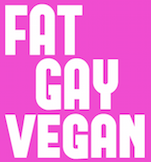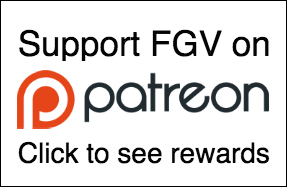Vegan fashion police
This article was originally written by me for Vegan Life Magazine. My column appears each month and you can find out about subscribing online here.
When faced with penning this column, I was slightly unsure of what I could say on the subject of vegan fashion. I’m not celebrated for my sense of style and I’ve been known to wear the same second-hand jeans for a decade.
But after a bit of reflection it became clear.
Fashion shouldn’t simply be about what it does for us personally. In addition to helping us get through the day and making us feel stylish, we need to consider what fashion does to animals and the planet.
There are many reasons why people decide against buying and wearing footwear, clothing, and accessories made from animals.
Of course the number one driver when it comes to dressing vegan is a desire to not contribute to animal suffering. For as long as there have been people not wanting to exploit animals, there have been attempts at dressing more kindly.
There are obvious materials to avoid when you start dressing with compassion such as leather and fur, but it sometimes takes a bit more convincing when it comes to wool. Even though they are not killed directly for their wool, sheep experience ongoing hardship such as exposure to extreme heat and cold while the practice of muelsing sees chunks of flesh being cut from them while alive and awake.
Pleather shoes, plastic skirts, acrylic cardigans, and PVC jackets started to find a following with compassionate fashionistas after initially launching as inexpensive alternatives. Just like we have accidentally vegan food, we have a lot of vegan-friendly fabrics that just happen to be that way.
There was a huge surge in the popularity of leather and fur alternatives in the 1980s and 90s as many celebrities took the cause to heart. Perhaps you remember anti-fur advertisements such as the series featuring rock band The Go-Gos brandishing the slogan ‘We’d rather Go-Go naked than wear fur’?
Purposively-vegan fashion brands started to emerge around this time including Vegetarian Shoes which commenced operations almost 30 years ago and Ethical Wares which came to be around 1993.
More recent high profile footwear and fashion brands include Will’s Vegan Shoes from London and VAUTE fashion label of New York City.
An important part of shopping for vegan fashion is understanding that not all animal-free materials are good for the planet or the people handling them.
Of course the fallout from leather is atrocious as it needs to be drenched in chemicals to stop it decomposing (a reminder that leather is dead animals!) and these chemicals are washed off into waterways therefore creating immeasurable environmental damage, however some alternatives can do their share of long-lasting harm as well. PVC has been used as a leather alternative for decades but we don’t currently have records to show how long this material takes to break down.
But where there is a problem, there is a more vegan-friendly solution.
Lefrik is an all-vegan bag and accessories fashion label using recycled plastic bottles to create fabric. The use of recycled PET fabric from plastic bottles saves 90% of water consumption and has a 75% lower carbon footprint than regular polyester. This fashion initiative is helping to keep plastic waste from landfills and oceans, as well as lessen CO2 emissions.
Other animal-friendly materials finding a home in the world of fashion include hemp, bamboo, pineapple fibre and cork. Many inventive designers are also repurposing and up-cycling vintage fabrics to help lessen the demand for animal skins and furs.
Steve Madden and Skechers now allow customers to search their online footwear catalogues using the ‘vegan’ category, while Reebok is going a step further to create a shoe made from organic cotton uppers and rubbery soles concocted from milled corn.
This mainstreaming of ethical and vegan products has been powered by compassionate fashion pioneers such as Angela Corcoran and James Beal of London ethical boutique and shoe store, The Third Estate.
Angela and James sell ethical vegan fashion to compassionate shoppers all over the planet via their online store and are a treasured local business with their shop front in North London.
I approached the duo to find out what advice they have for people looking to make better fashion choices for animals, workers, and the environment and they were both adamant when saying that there is no such thing as an inexpensive ethical product. If consumers are not paying very much for something, someone else is paying in other ways. A pair of shoes might be animal free, but if they are low-priced that undoubtedly means workers are being paid poorly.
The Third Estate is on the frontline of tackling all of the ethical dilemmas thrown up by fashion. The business promotes labels that put animals, workers, and the planet at the centre of all they do by using animal alternatives, paying fair wages, and working to strict environmental guidelines.
Angela reminded me of that old adage that less is more when it comes to fashion, but maybe in a different sense than the quote was first intended.
She said, “We should buy less fashion and we should think carefully about what we do buy. We can look fabulous and make kinder choices for animals, factory workers, and the planet at the same time.”
Sounds perfect to me. Kinder choices will never go out of style.





